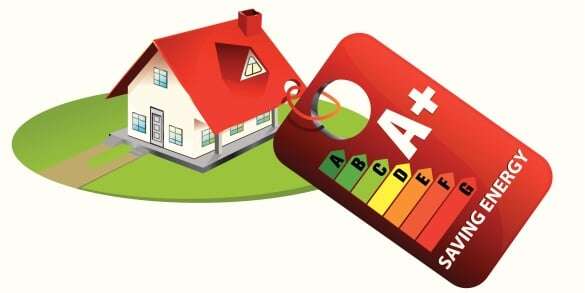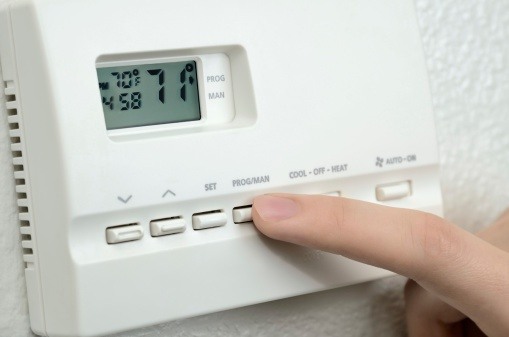 At this time of year, it's common to hear two types of groaning noises emanating from homes throughout Northern California.
At this time of year, it's common to hear two types of groaning noises emanating from homes throughout Northern California.
The first type of groan streams from 15 to 20-year-old furnaces closing in on the very last days of their service lives. (Those furnaces; they get noisy as they come to a halt.) The second type of groan streams from the owners of those furnaces who are coming to terms with making what is often an unexpected purchase and always a significant one.
As you know from reading a previous Experts In Your Home article, “Steps to Buying a New Home Heating System,” a licensed Experts In Your Home heating technician begins the methodical process of properly sizing a home and inspecting the integrity of ductwork before sitting down and showing a homeowner the many furnace choices available.
At this juncture, our technicians often are asked: “Is an Energy Star-rated heating system really necessary?”
This is an entirely fair question, and it deserves both a short and longer answer. The short answer: No; other, less efficient furnaces are available.
The longer answer: There is no doubt that Energy Star furnaces represent the most efficient and reliable furnaces available, and since Experts In Your Home wants the very best for its customers, these are the furnaces we recommend. Here's the longer-still answer as to why.
A star is born
Energy Star has a broader scope today than it did when it was established by the U.S. Environmental Protection Agency in 1992. In association with the Clean Air Act, the program's original mission was to develop and evaluate strategies and technologies to reduce air pollution.
Congress added greater luster to Energy Star in 2005, when it brought in the U.S. Department of Energy to identify and promote “energy–efficient products and buildings in order to reduce energy consumption, improve energy security and reduce pollution.”
This expansion ushered in a new era for Energy Star – and made it infinitely more visible to consumers. After rigorous, third-party testing, only products that henceforth met superior manufacturing standards and achieved high energy efficiency ratings were awarded the Energy Star “stamp of approval.”
The now-familiar star graces more than 50 types of products, including lighting, appliances, windows and heating and air conditioning systems.
Energy Star turns up the heat
Heating systems that earn the Energy Star feature several distinct advantages because they:
- Achieve higher annual fuel utilization efficiency (AFUE) ratings. The EPA mandates that all furnaces achieve an AFUE rating of at least 80. It has signaled that it would like the minimum rating raised to 92 – perhaps because many Energy Star meet and exceed this standard (with some heating systems scoring 97s).
An average student might view these two-digit numbers cheerfully: An 80 is a low B, but it's still a B. But Experts In Your Home customers are way above average. A furnace with an AFUE rating makes good use of 80 percent of the energy it consumes but wastes the other 20 percent, which is significant. Energy Star heating systems close this important gap. - Translate higher efficiency into lower gas bills. The EPA estimates that highly efficient Energy Star furnaces save many homeowners about $100 per year. Consumer Reports places the savings in another context: for every $100 you spend on gas, Energy Star furnaces can save up to $40.
- Offer greater reliability and longevity. The benefits of Energy Star furnaces take on added significance when placed in the context of a study conducted by the Consumer Reports National Research Center of more than 21,00 furnaces.
When furnaces failed, 77 percent needed significant work, with nearly one-third producing no heat for more than one day. Improved indoor air quality because they are designed to reduce the risk of dangerous carbon monoxide backdrafting.
These are the facts, and they're impressive ones, which is why Experts In Your Home makes its preference for Energy Star heating systems known.
It's equally true that “the price of a furnace generally rises in step with its fuel efficiency,” as Consumer Reports says.
So when customers ask, “Is an Energy Star-rated heating system really necessary?” Experts In Your Home respects the boundaries of the trusting relationships we've developed with our customers: Over the groans of furnaces and people alike, we make a recommendation but place the final decision exactly where it belongs.








